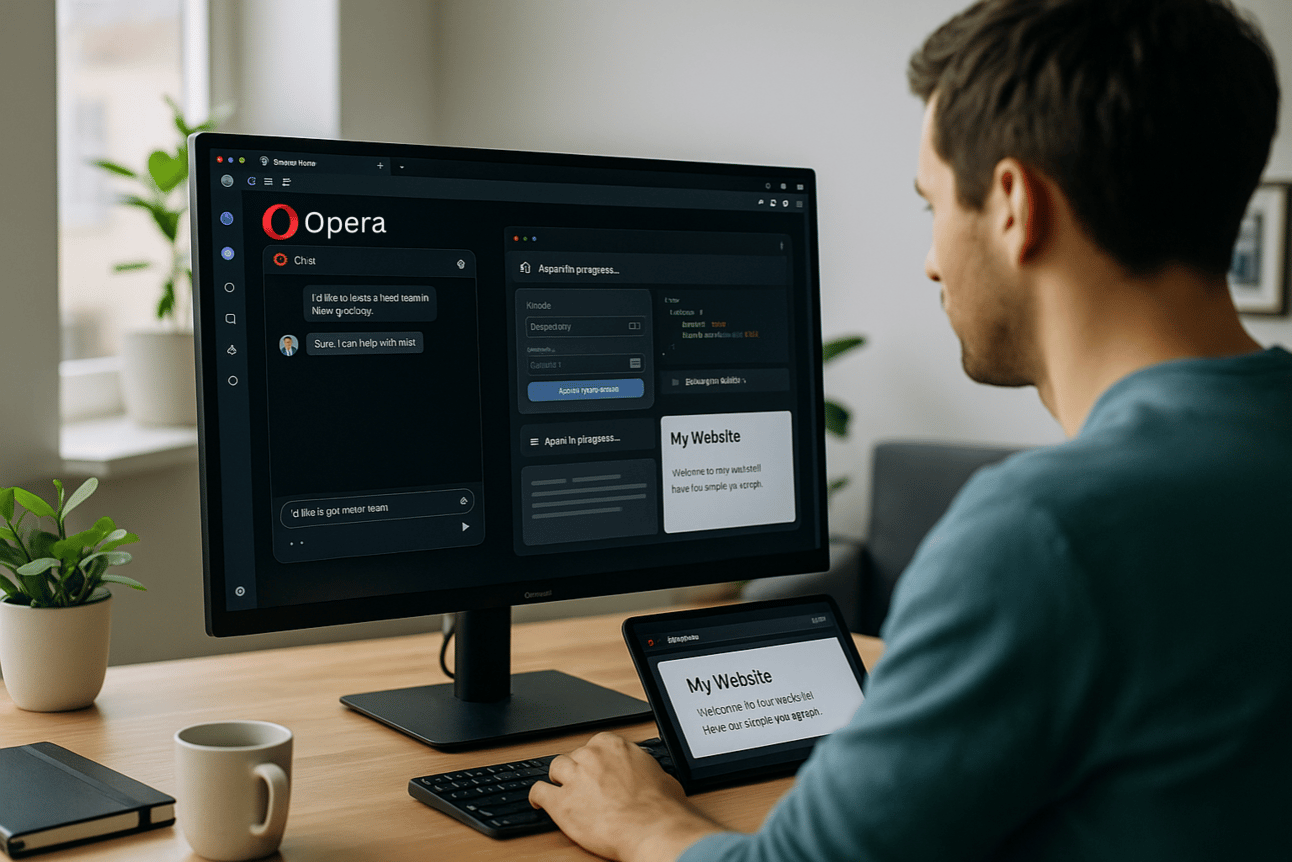
Image Source: ChatGPT-4o
Opera Launches Neon: A New AI Agentic Browser
Opera has announced the launch of Opera Neon, a new browser designed to bring AI agents directly into the browsing experience. The company describes it as a reimagined tool for the next generation of the web—one where AI doesn’t just assist with search or answers, but actively performs tasks and creates content on behalf of the user.
Built from years of development, Opera Neon is the company’s boldest step yet toward what it calls “agentic browsing.” This means the browser doesn’t just display or search the web—it understands user intent, interacts with web content, and acts on the user’s behalf.
“We’re at a point where AI can fundamentally change the way we use the internet and perform all sorts of tasks in the browser,” said Henrik Lexow, Senior AI Product Director at Opera. “Opera Neon brings this to our users’ fingertips.”
A Browser That Understands and Acts
At the core of Opera Neon is a fully integrated AI agent that users can interact with via chat. It can:
Search the web
Provide contextual answers based on the page the user is viewing
Offer AI-powered support similar to existing chat-based assistants
But Neon goes well beyond passive assistance. It also includes an advanced AI feature previously demoed as “Browser Operator,” which can carry out routine web tasks such as:
Filling out forms
Booking hotels or travel
Navigating shopping sites and completing purchases
These actions are performed locally in the browser, ensuring that user data and interactions stay private and secure.
Building, Not Just Browsing
Opera Neon introduces another capability rarely seen in consumer browsers: an AI engine that can generate content, software, or tools based on user input—even after the user goes offline.
Hosted in a virtual machine in the cloud, the browser’s AI agents can take on complex creative requests, such as:
Designing and building a website
Creating a playable game
Writing a report or generating code
Producing multiple projects simultaneously
This cloud-hosted architecture allows Neon to continue working independently—turning ideas into fully formed outputs, even without the user’s active supervision.
Early Access and Availability
Opera Neon is launching as a premium subscription product, and the company is inviting early adopters to join the waitlist starting today at operaneon.com.
The browser is being positioned as a collaborative platform, where Opera hopes to shape the future of agentic web browsing alongside its user community.
What This Means
Opera Neon is the first mainstream browser built specifically around the concept of AI agents that not only understand user intent, but act on it—navigating, interacting with, and even creating content on the web. Unlike current AI-integrated browsers that focus on chat or summarization, Neon moves further into action and automation.
While tools like Perplexity offer powerful AI search with cited sources, and assistants like ChatGPT can generate everything from reports to code to social media posts, they still rely on users to take the next steps—copying results, pasting into forms, or navigating websites manually. And while ChatGPT can find hotels based on a user's preferences and guide them through the booking process, it cannot fully confirm reservations or accept payments directly; the user still needs to finalize the transaction.
Opera Neon, by contrast, integrates these capabilities within the browser itself, enabling AI agents to not just assist, but to act—booking a hotel, filling out forms, completing transactions, or building full projects—all based on user intent and real-time web context, executed directly inside the browsing experience.
With local execution for privacy and cloud-based processing for complex tasks, Neon also blends two important needs: user control and extended capability.
Where other browsers have added AI as a layer, Opera is using it as a foundation—one that could redefine what people expect a browser to do. If this model gains traction, it may push competitors to rethink their own approach to the web's next chapter.
Editor’s Note: This article was created by Alicia Shapiro, CMO of AiNews.com, with writing, image, and idea-generation support from ChatGPT, an AI assistant. However, the final perspective and editorial choices are solely Alicia Shapiro’s. Special thanks to ChatGPT for assistance with research and editorial support in crafting this article.
